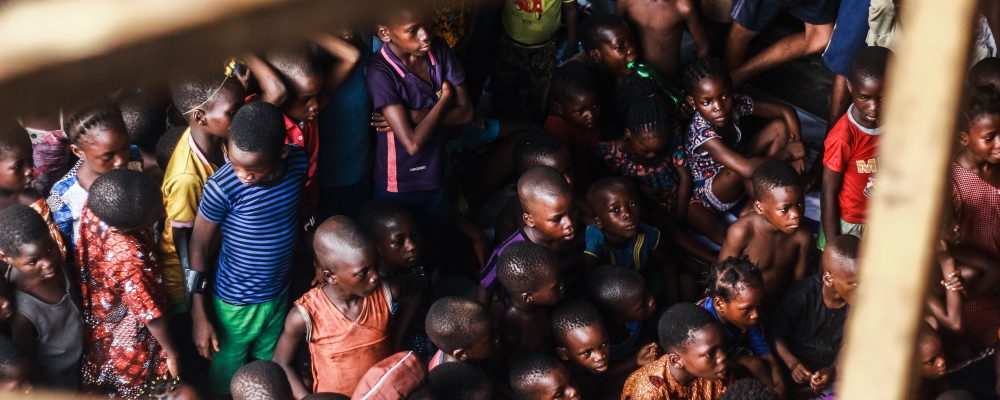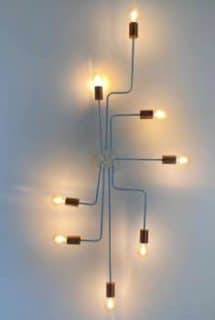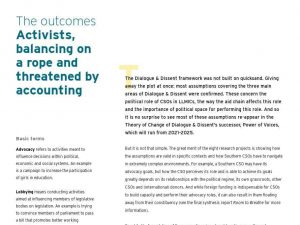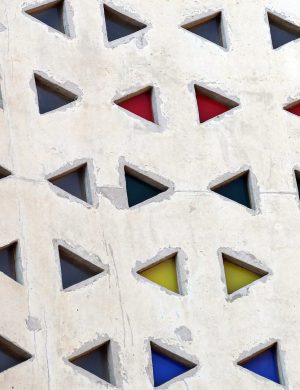
NWO-WOTRO Science for Global Development has awarded 22 projects within the WOTRO Impact and Innovation Grants (I&IG) that build on previously funded NWO-WOTRO projects. The grant offers the researchers the opportunity to 1) enhance the project’s societal impact (Cluster Societal Impact Grant) or 2) develop an innovative, societally relevant research idea that stems from the findings of the project (Cluster Innovation Seed Grants). Two of these projects are led by researchers from former INCLUDE programmes, both falling under the Cluster Societal Impact Grants. A brief description of each project and their associated former research programme can be found below.
Analysing community-based legitimacy through the development of a toolkit for advocacy organisations working with intermediaries in the Global South
dr. M. (Maaike) Matelski (F), VU University Amsterdam
This project builds on the programme ‘Supporting new roles of civil society organisations for inclusive development‘ (2016-2020), which examined the assumptions of the Theory of Change underlying the Dutch Ministry of Foreign Affairs’ civil society policy framework ‘Dialogue & Dissent’ that focused on tackling the causes of poverty and inequality. The research conceptualized the multiple dimensions of legitimacy for advocacy in civil society organisations (CSOs) operating in the Global South.
The project zooms in on aspects of legitimacy valued by local constituencies in rural and remote areas, who form the CSOs’ intended beneficiaries. The project will operationalise community-based legitimacy in the form of a toolkit developed for advocacy CSOs, as well as web(v)logs that target a general audience. The primary focus is on the role of intermediaries on the community level, who form part of an informal local aid chain that has not been systematically identified in academic literature, and whose position and activities might be affected by the recent COVID-19 pandemic. The project formulates specific best practices and recommendations to CSOs, donors and policy makers in order to reduce the tension between CSOs’ aspired representation of local communities, and the challenges experienced by their intermediaries.
Relevance and impact of community ownership in the implementation of Low-cost Post-Traumatic Stress Programme (SHLCPTS) to support women’s social-economic resilience in Northern Uganda
dr. P. (Primrose) Nakazibwe (F), Ndejje University
This research follows on from the Research for Inclusive Development in Sub Sahara Africa (RIDSSA) programme (2014-2018), which developed policy description and practical advice for transformation processes in Africa through the role of strategic actors, productive employment policies and cost-effective social protection programmes. The research found a significant effect of the intervention on social-economic resilience. Given the positive results, the question is, what happened after the research ended?
The research investigates how a self-help, low-cost post-traumatic stress relief (SHLCPTS) grassroots intervention contributes to societal change, enabling the inclusion, empowerment, and effective participation of vulnerable groups in sub-Saharan Africa. The research adds to the literature of development studies by providing empirical evidence of how culturally contextualized interventions strengthen communities. This research investigates (i) the mechanisms through which the communities have strengthened the cultural adaptation and ownership of the trauma-relief-tool and engaged in reaching a larger group of participants (ii) determining the psychological and social processes through which the adjusted intervention contributes to the treatment of trauma to explain the changes achieved (including reduction of domestic violence); and (iii) the use of the findings by policymakers at district and national level for policy formulation.







